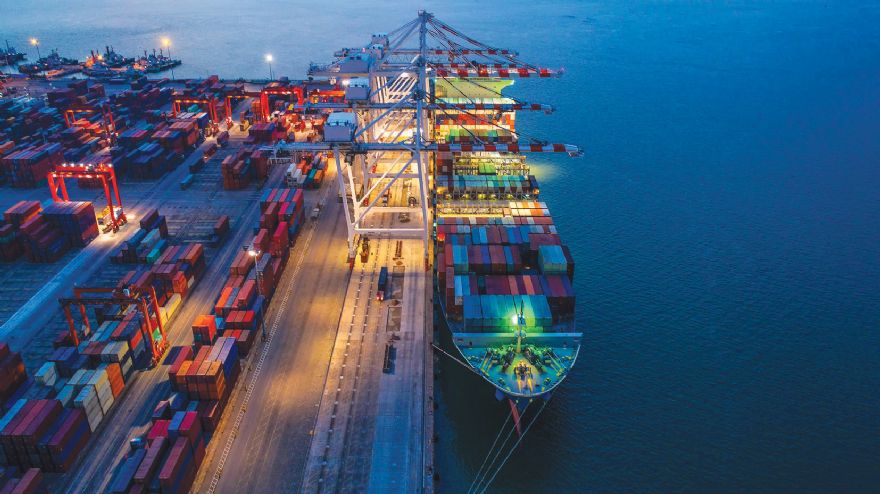
The
Global Maritime Forum earlier this month revealed the immense economic potential presented by the decarbonisation of shipping. New analysis, commissioned by the Global Maritime Forum and conducted by
Arup, projects that the maritime sector’s transition to e-fuels could support up to four million new green jobs worlwide by 2050, double the number of seafarers currently employed globally today. Job creation will be seen across the three main phases of the supply chain: renewable energy generation; hydrogen production; and e-fuel production.
The shipping industry is currently responsible for 3% of global CO
2 emissions, equivalent to the annual emissions of Japan. As the backbone of the global economy – responsible for 80% of global trade – the industry has faced enormous pressure to rapidly decarbonise. In 2023, the International Maritime Organization (IMO)’s member states agreed an end date to fossil fuel consumption “by or around 2050”.
Achieving this target will require large volumes of scalable zero-emission fuels, a significant share of which will be e-fuels based on hydrogen. Projections show that shipping’s demand for e-fuels could rapidly scale to over 500 million tonnes by 2040, rising to 600 million tonnes by 2050. Meeting such demand could require an additional 2TW of renewable energy generation capacity, and 1TW of hydrogen production capacity by 2050.
The report,
Green Jobs and Maritime Decarbonisation, focuses on renewable energy and fuel production linked to e-fuels, adopting an illustrative scenario where e-fuels become the energy source for international shipping. In this scenario, up to £3.2 trillion of investment is required to support the development of renewable infrastructure, hydrogen production, and fuel production facilities for e-ammonia for shipping.
This significant capital investment will have a dramatic impact on the creation of green jobs across the supply chain. It also has the potential to create immense benefits to the wider economy, furthering climate action, while also supporting the development of renewable energy projects and the uptake of green hydrogen across other sectors.
Jesse Fahnestock, director of decarbonisation at the Global Maritime Forum, said: “This research marks a critical first step in exploring the fundamental role maritime decarbonisation will play in the creation of ‘green’ jobs within the energy sector. The analysis demonstrates the sheer scale of the potential to create large numbers of highly-skilled green jobs, in this instance driven by a single fuel. Many of these jobs will also be transferable to other sectors — supporting further decarbonisation beyond shipping.”
Providing shipping decarbonisation keeps track with the IMO’s ‘striving indicative checkpoints’, the new data provides an outline of the growth of green jobs from the 2020s through the 2040s for each of the main areas of the supply chain – renewable energy generation, hydrogen production and e-fuel production.
Connor Bingham, project manager at Global Maritime Forum and report author, said: “The huge levels of investment will impact all corners of the globe, helping many countries around the world provide opportunities to workers negatively affected by the transition away from more carbon-intensive industries. It’s vital that we further explore the different geographic implications, particularly in the Global South, to ensure we can unlock the enormous potential for economic growth across nations.”